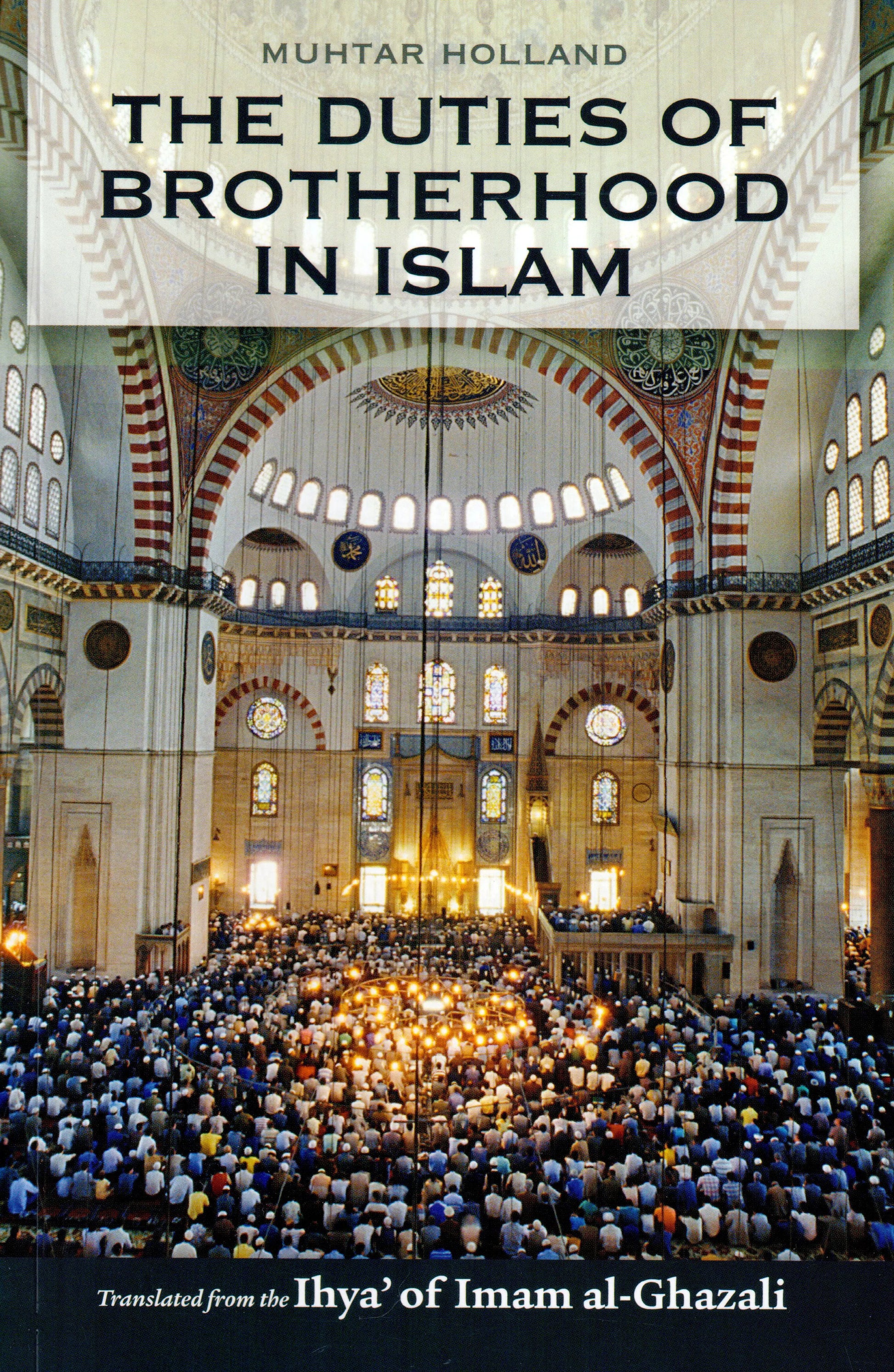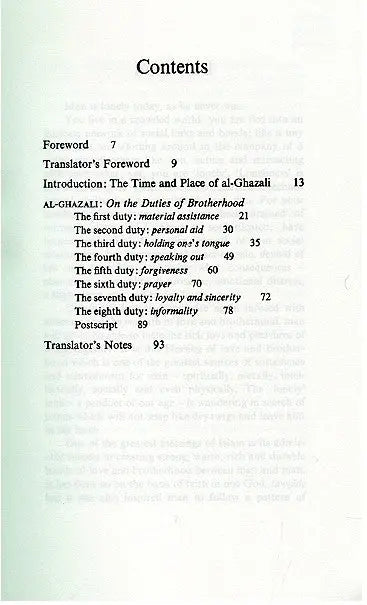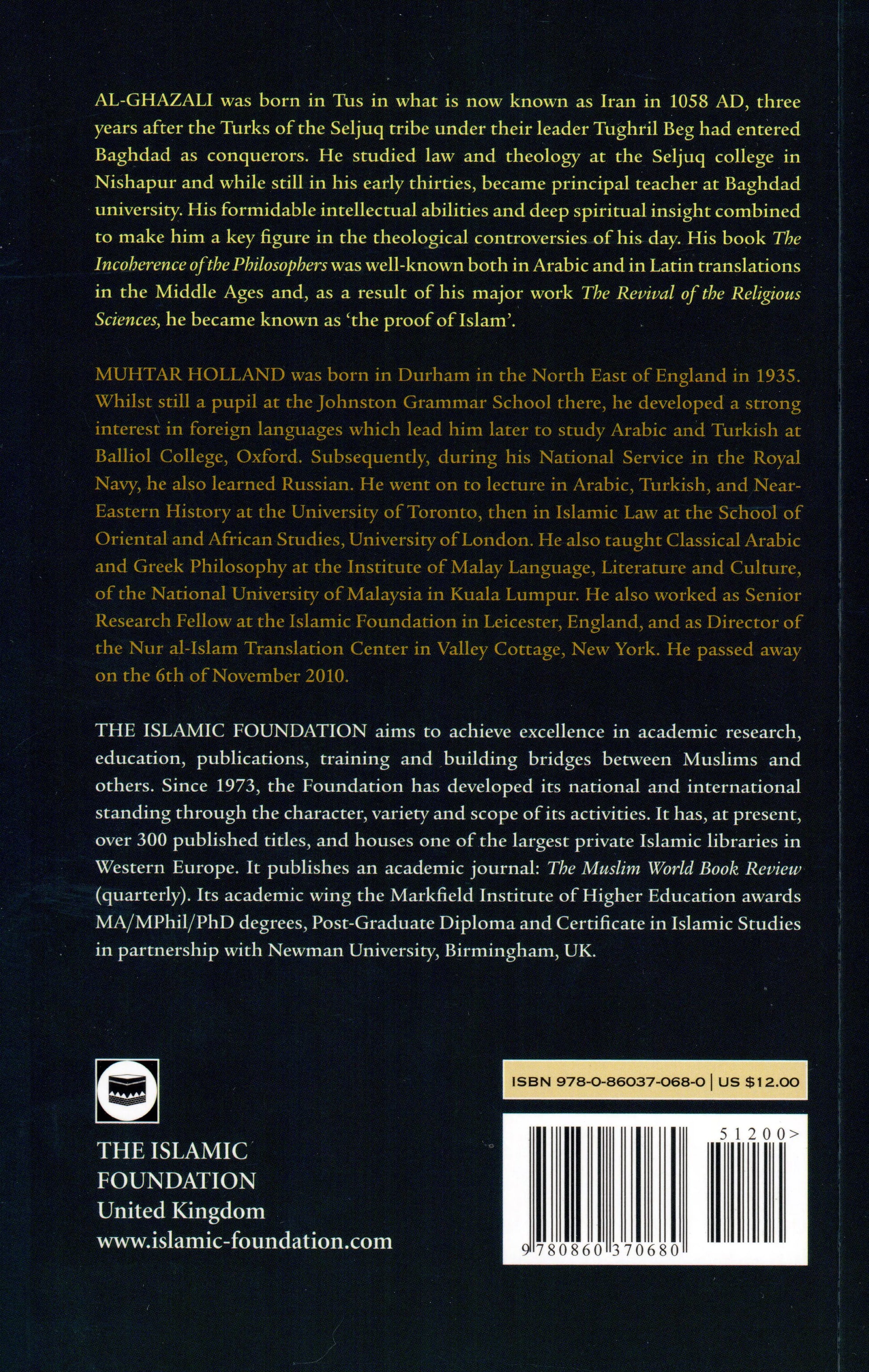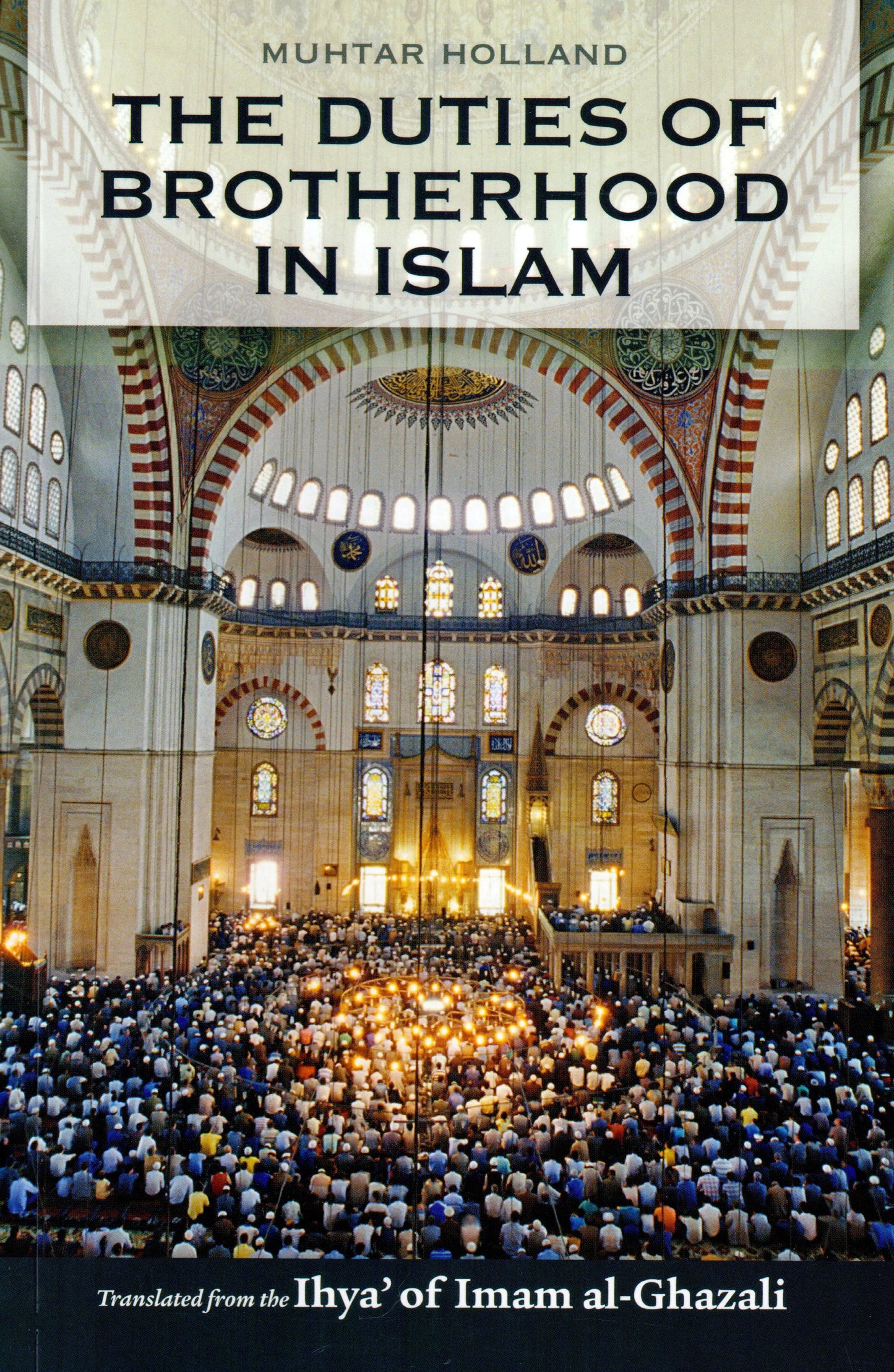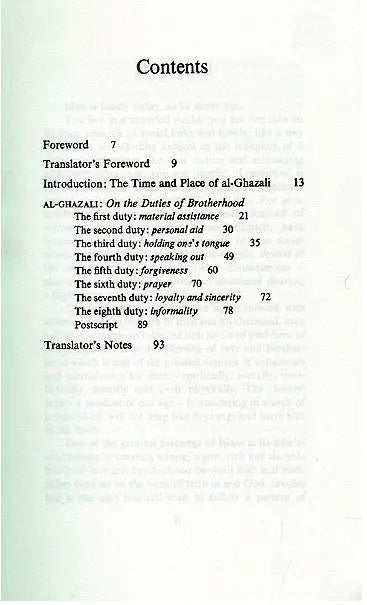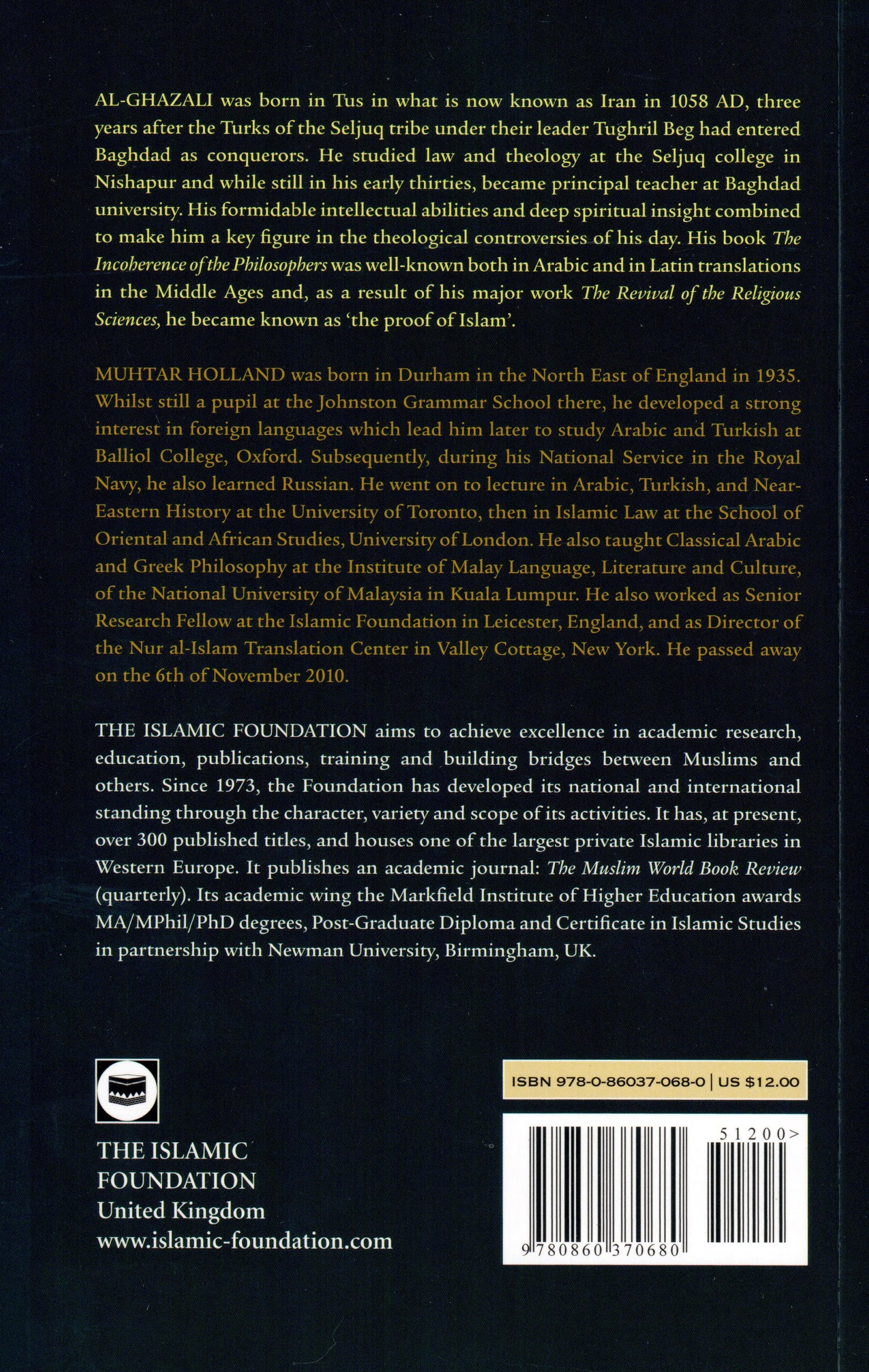About The Book
Al-Ghazali explores the meaning and significance of fraternity in Islam in this brilliant essay from his seminal work, The Revival of the Religious Sciences, which covers material assistance, personal aid, holding ones tongue, speaking out, forgiveness, loyalty, sincerity and informality.
About The Author
Imam Abu Hamid Muhammad Al-Ghazali was born in 450 AH (1058 A.D) in the Iranian town of Tus, studied Islamic law and theology at the Seljuq College in Nishapur, and became a distinguished professor at the famous Nizamiyya University in Baghdad.
Despite his glittering success, he was inwardly dissatisfied, so he abandoned his career for the life of hardship, abstinence and devotion to worship. During ten years of wandering, he experienced a spiritual transformation, in which the Truth came to him at last, as something received rather than acquired.
Blessed with an inner certainty, he then applied his outstanding faculties and vast learning to the task of revitalizing the whole Islamic tradition. Through his direct personal contacts, and through his many writings, he showed how every element in that tradition could and should be turned to its true purpose.
Imam al-Ghazzali was fondly referred to as the "Hujjat-ul-lslam", Proof of Islam, he is honored as a scholar and a saint by learned men all over the world and is generally acclaimed as the most influential thinker of the Classical period of Islam.
He passed away in 505 AH (1111 A.D).
About The Translator
Muhtar Holland was born in 1935, in the ancient city of Durham in the North East of England. This statement may be considered anachronistic, however, since he did not bear the name Muhtar until 1969, when he was moved-by powerful experiences in the latihan kejiwaan of Subud-to embrace the religion of Islam.
His freelance activities have mostly been devoted to writing and translating in various parts of the world, including Scotland and California. He made his Pilgrimage [Hajj] to Mecca in 1980.
show more
